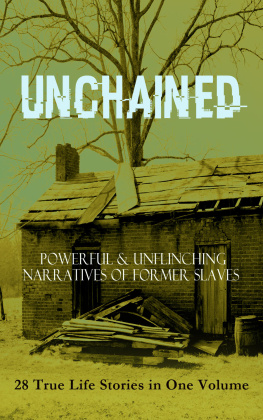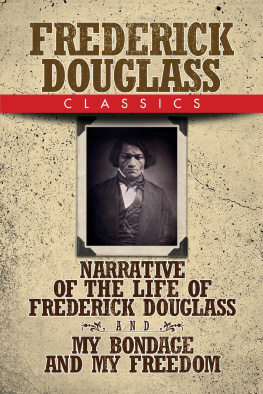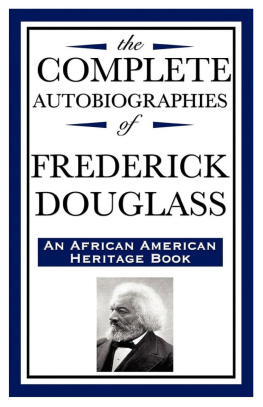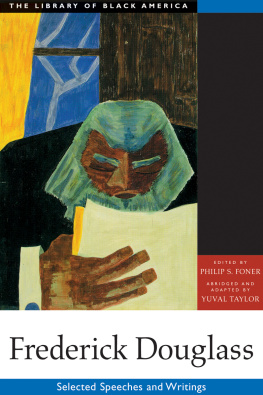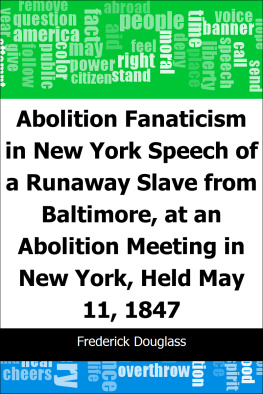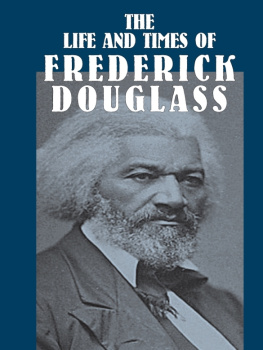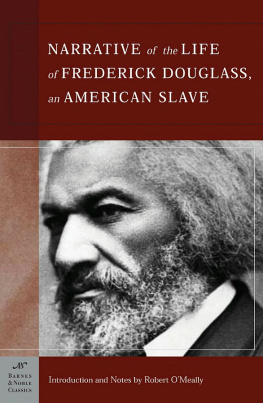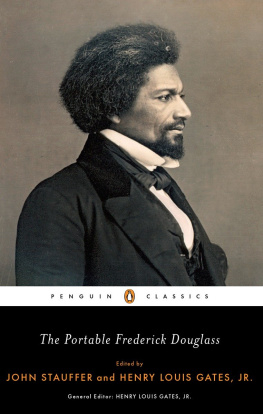African American history is the part of American history that looks at the past of African Americans or Black Americans.
Of the 10.7 million Africans who were brought to the Americas until the 1860s, 450 thousand were shipped to what is now the United States.
Most African Americans are descended from Africans who were brought directly from Africa to America and became slaves. The future slaves were originally captured in African wars or raids and transported in the Atlantic slave trade.
Our collection includes the following works:
Narrative Of The Life by Frederick Douglass. The impassioned abolitionist and eloquent orator provides graphic descriptions of his childhood and horrifying experiences as a slave as well as a harrowing record of his dramatic escape to the North and eventual freedom.
Incidents In The Life Of A Slave Girl by Harriet Jacobs. Powerful by portrayal of the brutality of slave life through the inspiring tale of one woman's dauntless spirit and faith.
Up From Slavery by Booker T. Washington. Washington rose to become the most influential spokesman for African Americans of his day. He describes events in a remarkable life that began in slavery and culminated in worldwide recognition.
The Souls of Black Folk by W. E. B. Du Bois. W. E. B. Du Bois was an American sociologist, socialist, historian, civil rights activist, Pan-Africanist, author, writer and editor.
From Slavery to Freedom
Narrative of the Life of Frederick Douglass, Incidents in the Life of a Slave Girl, Up from Slavery, The Souls of Black Folk
NARRATIVE OF THE LIFE
by
Frederick Douglass
PREFACE
I n the month of August, 1841, I attended an anti-slavery convention in Nantucket, at which it was my happiness to become acquainted with Frederick Douglass, the writer of the following Narrative. He was a stranger to nearly every member of that body; but, having recently made his escape from the southern prison-house of bondage, and feeling his curiosity excited to ascertain the principles and measures of the abolitionists, of whom he had heard a somewhat vague description while he was a slave, he was induced to give his attendance, on the occasion alluded to, though at that time a resident in New Bedford.
Fortunate, most fortunate occurrence! fortunate for the millions of his manacled brethren, yet panting for deliverance from their awful thraldom! fortunate for the cause of negro emancipation, and of universal liberty! fortunate for the land of his birth, which he has already done so much to save and bless! fortunate for a large circle of friends and acquaintances, whose sympathy and affection he has strongly secured by the many sufferings he has endured, by his virtuous traits of character, by his ever-abiding remembrance of those who are in bonds, as being bound with them! fortunate for the multitudes, in various parts of our republic, whose minds he has enlightened on the subject of slavery, and who have been melted to tears by his pathos, or roused to virtuous indignation by his stirring eloquence against the enslavers of men! fortunate for himself, as it at once brought him into the field of public usefulness, gave the world assurance of a MAN, quickened the slumbering energies of his soul, and consecrated him to the great work of breaking the rod of the oppressor, and letting the oppressed go free!
I shall never forget his first speech at the convention-the extraordinary emotion it excited in my own mind-the powerful impression it created upon a crowded auditory, completely taken by surprise-the applause which followed from the beginning to the end of his felicitous remarks. I think I never hated slavery so intensely as at that moment; certainly, my perception of the enormous outrage which is inflicted by it, on the godlike nature of its victims, was rendered far more clear than ever. There stood one, in physical proportion and stature commanding and exact-in intellect richly endowed-in natural eloquence a prodigy-in soul manifestly created but a little lower than the angels-yet a slave, ay, a fugitive slave, trembling for his safety, hardly daring to believe that on the American soil, a single white person could be found who would befriend him at all hazards, for the love of God and humanity! Capable of high attainments as an intellectual and moral being-needing nothing but a comparatively small amount of cultivation to make him an ornament to society and a blessing to his race-by the law of the land, by the voice of the people, by the terms of the slave code, he was only a piece of property, a beast of burden, a chattel personal, nevertheless!
A beloved friend from New Bedford prevailed on Mr. Douglass to address the convention: He came forward to the platform with a hesitancy and embarrassment, necessarily the attendants of a sensitive mind in such a novel position. After apologizing for his ignorance, and reminding the audience that slavery was a poor school for the human intellect and heart, he proceeded to narrate some of the facts in his own history as a slave, and in the course of his speech gave utterance to many noble thoughts and thrilling reflections. As soon as he had taken his seat, filled with hope and admiration, I rose, and declared that Patrick Henry, of revolutionary fame, never made a speech more eloquent in the cause of liberty, than the one we had just listened to from the lips of that hunted fugitive. So I believed at that time-such is my belief now. I reminded the audience of the peril which surrounded this self-emancipated young man at the North, even in Massachusetts, on the soil of the Pilgrim Fathers, among the descendants of revolutionary sires; and I appealed to them, whether they would ever allow him to be carried back into slavery, law or no law, constitution or no constitution. The response was unanimous and in thunder-tones-NO! Will you succor and protect him as a brother-man-a resident of the old Bay State? YES! shouted the whole mass, with an energy so startling, that the ruthless tyrants south of Mason and Dixon's line might almost have heard the mighty burst of feeling, and recognized it as the pledge of an invincible determination, on the part of those who gave it, never to betray him that wanders, but to hide the outcast, and firmly to abide the consequences.
It was at once deeply impressed upon my mind, that, if Mr. Douglass could be persuaded to consecrate his time and talents to the promotion of the anti-slavery enterprise, a powerful impetus would be given to it, and a stunning blow at the same time inflicted on northern prejudice against a colored complexion. I therefore endeavored to instil hope and courage into his mind, in order that he might dare to engage in a vocation so anomalous and responsible for a person in his situation; and I was seconded in this effort by warm-hearted friends, especially by the late General Agent of the Massachusetts Anti-Slavery Society, Mr. John A. Collins, whose judgment in this instance entirely coincided with my own. At first, he could give no encouragement; with unfeigned diffidence, he expressed his conviction that he was not adequate to the performance of so great a task; the path marked out was wholly an untrodden one; he was sincerely apprehensive that he should do more harm than good. After much deliberation, however, he consented to make a trial; and ever since that period, he has acted as a lecturing agent, under the auspices either of the American or the Massachusetts Anti-Slavery Society. In labors he has been most abundant; and his success in combating prejudice, in gaining proselytes, in agitating the public mind, has far surpassed the most sanguine expectations that were raised at the commencement of his brilliant career. He has borne himself with gentleness and meekness, yet with true manliness of character. As a public speaker, he excels in pathos, wit, comparison, imitation, strength of reasoning, and fluency of language. There is in him that union of head and heart, which is indispensable to an enlightenment of the heads and a winning of the hearts of others. May his strength continue to be equal to his day! May he continue to grow in grace, and in the knowledge of God, that he may be increasingly serviceable in the cause of bleeding humanity, whether at home or abroad!


